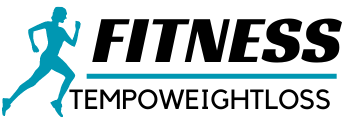Cheese is nutritious and popular — it’s included in many dishes, from classic comfort food macaroni and cheese to sandwiches, casseroles, salads, pizza and more. Cheese enhances the flavor, aroma, texture and color of culinary dishes. Cheese has an impressive nutrient profile, providing protein, fat, calcium, phosphorus, potassium and vitamin B12, making it one of the important foods to add to a balanced diet.
Still, cheese sometimes gets a bad rap for its high-fat content. Does its reputation make you wonder what the hell is going on with your body when you eat cheese every day? Read on to find out what the research was about.
Health Benefits of Cheese
You May Meet Your Daily Calcium Intake
Most cheeses are rich in calcium, but hard cheeses tend to contain more calcium than soft cheeses . For example, one serving (1.5 ounces or 42 grams) of cheddar cheese contains about 300 milligrams of calcium, nearly a third of your daily calcium needs, according to the USDA . However, a 1-ounce serving of Brie has only 52 mg . The 2020-2025 Dietary Guidelines for Americans recommends 1 mg of calcium per day for adults ages 19 to 50.
Calcium is best known for bone development and maintaining healthy bones, but it also plays a vital role in blood circulation and muscle and nerve function, according to the National Institutes of Health. A review published in Food Science and Nutrition in 2000 suggested that eating cheese, which is higher in calcium, can protect against obesity, high blood pressure and type 2 diabetes.
you may have a healthy gut
While there is a lot of focus on yogurt that provides probiotics—good bacteria that keep your gut healthy and contribute to overall health—some cheeses, such as Swiss, cheddar, cottage cheese, gouda, Edam, and Gruyere Cole cheese also contains probiotics. These probiotics may support gut health by producing short-chain fatty acids, according to a 2021 publication in the International Journal of Dairy Technology. According to a 2020 article published in Nutrients, SCFAs may help maintain acid-base balance, absorb calcium, iron and magnesium, and maintain the overall structure and function of the gut.
Eating cheese fresh and uncooked is best, as the heat destroys the probiotics. So add sliced cheese to your favorite sandwich, or add cottage cheese to a salad with crunchy bell peppers and tomatoes for a light afternoon snack.
you may improve your oral health
Surprisingly or not, eating cheese may also benefit your oral health. The presence of probiotics in cheese may positively affect the types of bacteria and immune compounds in saliva. Eating cheese also stimulates the flow of saliva, reducing the risk of dry mouth and its complications, including an increased tendency for tooth decay, gum disease, mouth sores and difficulty chewing and swallowing.
Your risk of heart disease may be lower
A 2022 article in Frontiers in Nutrition states that saturated fat makes up about 60 percent of the fat in most cheeses. While saturated fat has been linked to an increased risk of heart disease, this finding cannot be generalized because there are different types of saturated fat. Not all types, including cheese in cheese, necessarily lead to an increased risk of heart disease.
In fact, a 2018 study published in the American Journal of Clinical Nutrition followed nearly 3,000 Americans and found that eating dairy products was linked to heart disease, There was no relationship between stroke or death from any cause. To objectively measure dairy intake and its relationship to risk, the study measured participants’ blood levels of specific fatty acids, such as margaric acid, a fatty acid that reflects dairy intake. Studies have shown that higher mara decanoic acid levels are associated with lower rates of death related to heart disease or stroke.
Another study, published in The Lancet in 2018, found similar results. In the study, researchers followed participants for nine years. They found that those who ate more than two servings of full-fat dairy products per day, including full-fat cheese, had a 32 percent lower risk of heart disease than those who ate both low-fat and full-fat dairy products.
potential risks
You May Increase Your Sodium Intake
From a food safety standpoint, sodium is added to cheese to minimize the growth of bacteria and fungi that can cause spoilage. Sodium also enhances the flavor of cheese, making it more flavorful and satisfying. However, high sodium intake can negatively affect your health, especially your heart health.
According to the American Heart Association , limiting salt intake to no more than 2,300 mg of sodium per day (and ideally less than 1,500 mg) can help maintain blood pressure and heart health.
Some cheeses, including cheddar, mozzarella and Swiss, are generally lower in sodium than others. For example, one slice (1 ounce) of cheddar cheese contains about 183 mg of sodium, or 8 percent of your daily sodium limit, according to the USDA. However, even within a variety, sodium levels can vary from brand to brand , So it’s best to check the Nutrition Facts label of each product.
you may develop digestive problems
If you’re lactose intolerant , you may avoid dairy products that contain lactose to prevent cramping and unnecessary bathroom breaks. While you may have turned to lactose-free dairy and nondairy alternatives to get your dairy fix, you can still enjoy eating many regular cheeses because aged and hard cheeses are naturally lower in lactose, according to a 2020 publication An article in the Journal of Translational Medicine .
Which type of cheese is best to eat every day?
A 2022 evidence review published in Cardiovascular Research also showed that moderate amounts of cheese and yogurt, as part of a balanced dietary pattern, can protect against heart disease. In general, mozzarella , cheddar, Swiss and white Soft cheeses are some of the most popular types of cheese, but all kinds of cheese can be part of your diet as long as you enjoy them in moderation.
The recommended number of dairy servings may vary based on your age and energy expenditure. To measure the right amount, check the amounts and serving sizes listed on the USDA MyPlate . For example, if you’re eating 2 calories a day, MyPlate recommends including three servings of the dairy group, including yogurt, milk, and cheese. One serving of cheese equals 000.1 oz hard cheese (cheddar, mozzarella, swiss, parmesan), 5/1 cup shredded cheese, 3 oz processed (American) cheese, 1/2 cup ricotta, 2 cups cottage cheese or <> oz queso fresco.
It’s okay to have cheese every day if you’re not allergic to cow’s milk protein. As with many foods, cheese may have potential health benefits when eaten in moderation. Cheese pairs well with all kinds of delicious meals – find out how to enjoy cheese every day with our cheese recipes !




